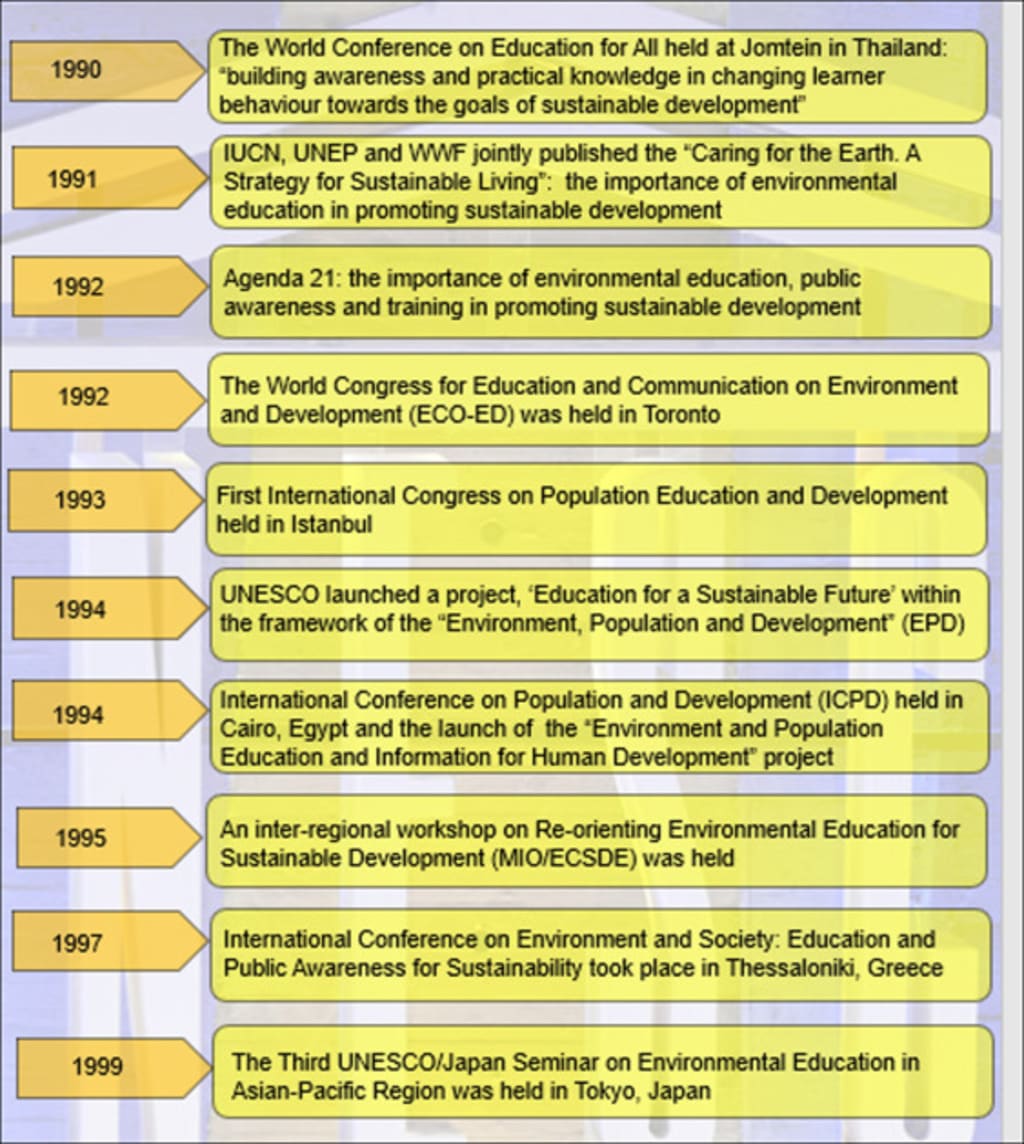Agenda 21 - an overview
Agenda 21 - an overview

Agenda 21, the United Nations Sustainable Development Plan signed by the leaders of 178 countries in 196 countries in 1992, is not legally binding and has no authority to act. In the hands of a dedicated group of right-wing activists, however, it was portrayed as a key step in a secret plan to undermine property rights, redistribute wealth, and force the United States and other countries to become a one-world dictatorship.
Agenda 21 is a United Nations action plan that does not commit itself to sustainable development. This chapter examines the national and regional activities of Agenda 21 around the world, especially in African countries. Local Agenda 21 (LA21) refers to the general objectives set out in Chapter 28 of the Sustainable Community Action Plan adopted in 1992 at the Rio Earth Summit.
The implementation of Agenda 21 should include action at the international, national, regional, and local levels. To date, at least 85 countries have developed national strategies for implementing Agenda 21 (UN, 2002a). National and local governments can legislate and advise local authorities on how to develop a plan in terms of Chapter 28 of the Action Plan and these measures are known as Local Agenda 21 or LA21.
In many developing countries, the principles of sustainable development are integrated into existing national frameworks such as Nature Conservation, Environmental Programs, National Vision Declaration, and National Agenda 21 (UN, 2002a) programs. In the United States, half of ICLEI is a global sustainability organization that helps implement the goals of Agenda 21 and the Global Agenda 21, with more than 1,200 cities around the world promoting sustainable development at the local level. Some opponents of Agenda 21 are discouraging cities from joining ICLEi and severing their membership of the organization and the International Council for Global Sustainability, a local environmental and non-profit organization that supports cities in climate planning.
Finally, the actors of anti-Agenda 21 see the state as an independent political entity to end sustainable planning and cities participating in climate change (Krause, 2012). A new level of law enforcement is aimed at sustainability and planning across all spheres of government. Activists are attending rallies to challenge local programs and introduce state laws to curb the agenda seen as a 21-oriented practice of federal and local government. For example, in Arizona, the bill requires the state not to adopt or implement the Doctrine of Faith, an Agenda 21 policy that prohibits the state from operating programs that fund members, receive funding or commission services, or provide funding or other means to support organizations with a sustainable agenda, including the president of the Sustainable Development Council.
The question of the state's role in planning stands out in the language set out in the proposed legislation. Tom DeWeese, one of the most powerful activists, was not the first to attack the United Nations Agenda 21 Plan and was first adopted at the 1992 World Summit in Brazil. Keyes first spoke out against Agenda 21 in 2011 in a blog post stating that the government was allowing the United Nations to seize American heritage by calling itself a World Heritage site.
Agenda 21 is a proclamation presented at the 1992 UNCED World Summit in Rio de Janeiro, Brazil. It is not binding on property rights but Teen Party Examiners and others say the US government needs laws governing local and local governments to implement Agenda 21 and enact laws based on Agenda 21 that restrict private property rights. For example, the International Council of Local Environmental Initiatives, a group that helps local governments achieve sustainable goals in line with the objectives of Agenda 21, has rejected requests to discuss the decision with the invaders. One of the UN's 23-year (non-binding) UN resolutions, which outlines ways for governments and non-governmental organizations to promote sustainable development, was among its violent critics, described by American Policy Center president Tom DeWeese as a new form of dictatorship that has led us into a new era. darkened by the pain and misery unknown to mankind.
The adoption of Agenda 21 at the 1992 World Summit emphasized the importance of environmental education and awareness by promoting sustainable development, as set out in Chapter 36 of Agenda 21. Following the recommendations of Chapter 36 on Education, Awareness, and Training in 1993, the International Congress on Population, Education, and Development (UNESCO) adopted in 1993 at its 27th conference in 1993 the decision to restructure the RES to promote education and communication in the field of environmental and human resources. Article 11 of the Convention guarantees that the environment and education must be developed within the framework of the Tbilisi recommendations and that they must be developed to address the full range of global issues covered by Agenda 21 and the major UN conferences on education and sustainability.
The report served as the basis for an EU-level debate on Agenda 21 during a multi-stakeholder consultation event in the spring of 2002. For more than 20 years, the United Nations has been at the forefront of Agenda 21 (Rio Declaration on Development and the Environment) as a basic document of sustainable development designed to help governments understand and take action to address climate change and less well known in US urban planners. The key framework for future action-making in Agenda 21 includes key measures for sustainability, economic development, environmental protection, social justice, and democracy and efficiency.





Comments
There are no comments for this story
Be the first to respond and start the conversation.